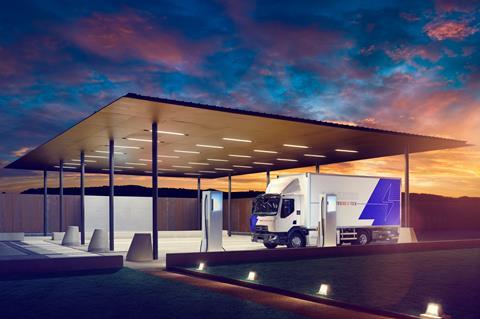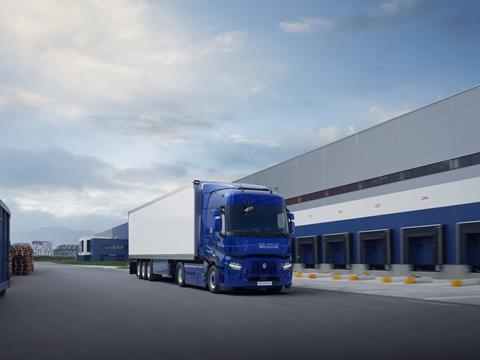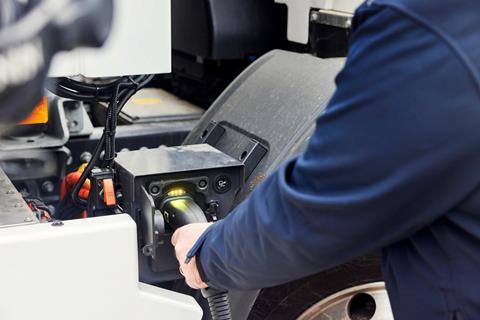For Renault Trucks, the future has always been electric. We have been leading the charge since 2008 to develop our electric offer. And while there have been many debates around different alternative fuels over the years, we are now seeing that the industry knows the destination is electric, too.

With ambitious decarbonisation objectives already laid out in legislation, our trade media keeps audiences informed of the news, insights and challenges that face the HGV sector. But what do the general public know of the challenges around legislation, charging infrastructure and incentives for electric HGVs?
If we are to accelerate change, we need to spread the word to wider audiences, to ensure people are aware of and understand the issues, to help shape public opinion that will drive government policy. Consumers are becoming more sustainably minded, making more sustainable choices and demanding more sustainable solutions from businesses, including transport. We need to get them – and keep them – on our side.
Talking the talk
The first step is to start talking, and with an audience of six million viewers, BBC Breakfast is a great opener. And on April 18th, in an interview with business journalist Nina Warhurst, Renault Trucks’ Managing Director, Carlos Rodrigues, discussed some of the challenges the industry faces around infrastructure and incentives following the SMMT’s call for a government HGV infrastructure strategy.

His message was clear and simple: we have the vehicles, we have the power, it’s just that bit in the middle…
In essence, as an industry, we’ve made huge investments in, and are already proving that electric trucks work. Renault Trucks has sold vehicles into a very wide range of customers and applications, including retail distribution, waste, recycling, construction, and general/pallet distribution.
The vehicles supplied so far all rely on a return to base business model and all the companies have invested in dedicated charging resources at their depots. However, as Renault Trucks introduces the T E-Tech range of electric tractor units later this year the need for a reliable public charging infrastructure provision becomes increasingly important. The Government’s ZERFD initiative will stimulate some investment in this area, but a more strategic approach would help accelerate the transition. Renault Trucks are working with key stakeholders including the UK and Scottish governments, National Grid, Volvo Group’s infrastructure joint venture Milence and others to help map paths to a viable public charging network, but ultimately Government must set a clear direction to ensure that the path followed benefits the most users.
Regarding incentives, Renault Trucks has worked with OZEV to ensure that Renault Trucks’ light and medium duty vehicles are qualified for the Plug-in Vehicle Grant, but the £25k on offer remains a fraction of that offered in many other countries. Unsurprisingly, uptake has been greatest where the incentives are greatest, and the UK government seems unwilling to follow the paths which have helped boost the proportion of buses and cars which offer zero tailpipe emissions.

To help reduce the perceived risks of operating electric HGVs, Renault Trucks has invested in expert staff to help operators plan for the transition to electric vehicles. With Vertellus, a new UK contract hire company, the company is offering 30 electric HGVs as part of their ‘EV Discovery’ programme. Through the EV Discovery programme operators can take a fully-equipped electric distribution vehicle, with a 60 kWh DC charger, for a three month ‘try before you buy’ period.
As we innovate to introduce new zero-carbon vehicles and services to the UK market we hope that the government will create the conditions which will help accelerate the change. With confidence, operators will invest in the new vehicles and many companies will bring their innovations to the charging and other services needed for the sector to thrive.
At the end of the BBC Breakfast interview, when asked if it could be done, Carlos answered emphatically: ‘Absolutely! And we are here for it!”
We know that many in government are equally committed to net zero, but need policies to match. Only then can we move confidently towards our freight zero carbon ambition.










